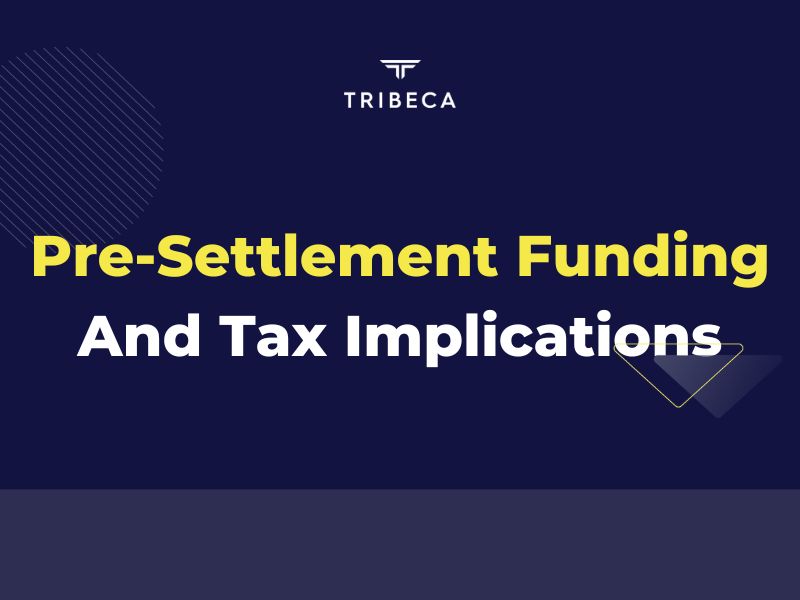Tax Implications for Pre-Settlement Funding
Is Pre-Settlement Funding Taxable?
Pre-settlement funding is often not regarded as taxable income, which is good news. The cash advance is considered a “non-recourse debt” by the Internal Revenue Service (IRS), which waives them from taxation. This implies that while completing your tax return, you won’t need to list the funding as income.
Reporting Pre-Settlement Funding on Your Tax Return
How do taxes work with pre-settlement funding? There is no requirement to report pre-settlement funding on your tax return because it is not taxable. However, it’s generally recommended to speak with a tax professional to ensure that you comply with current IRS regulations and to discuss any peculiarities of your situation.
Obtain Pre-Settlement Funding From Tribeca Right Away
You may call us at 866-388-2288, toll-free, or via completing our inquiry form for a free consultation and quote for your cash advance. We typically release funds as quickly as 24 hours upon approval.

